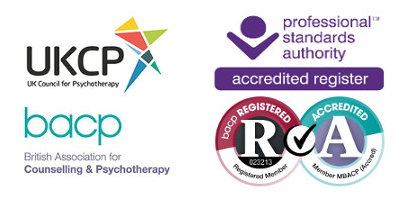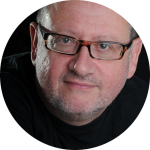Cognitive & Behavioural Therapy for Sleep Disorders & Therapy for Insomnia & Relaxation
Sleep Tips Video
This simple but useful video gives you some great ideas on getting a better night’s sleep
If your sleep is disrupted, fragmented or of poor quality, Insomnia and Sleep Therapy with Marcus can help you address the underlying difficulties, so that you can restore a healthy pattern and get the rest and recovery time that your body needs and is designed to enjoy. A behavioural therapy approach is an effective way to treat sleep disorders and insomnia.
What Is A Healthy Sleep Pattern or Sleep Cycle?
A normal, healthy pattern, repeating several times each night, is a cycle of 5 sleep stages as follows:
Stage 1: During the first 5-10 minutes of sleep, your eye movements and muscle activity slow down. You may experience sudden muscle contractions, followed by a sensation of falling.
Stage 2: Breathing and heart rate remain regular, body temperature begins to drop, eye movements stop altogether. Your brain waves slow down, with only the occasional rapid burst, and your memory is ‘backed up’ to long-term storage, which is essential for learning (so interruptions at this stage of sleep may be detrimental to your intellectual or cognitive capacities). Some cell repair occurs in Stage 2, although much less than in Stage 3 or 4.
Stages 3 & 4 (Deep Sleep): Breathing and heart rate slow, muscles relax, and hormones are released which promote tissue growth and repair.
REM Sleep: In the fifth stage, 90 minutes into the cycle, the brain becomes very active and energised, which is probably why dreams occur at this point. Hormones called ghrelin and leptin are released, which regulate not only your immune system but also your feelings of hunger and fullness – hence, you may eat more and gain weight if you’re deprived of REM sleep. Cortisol, another hormone, will begin to increase in order to promote alertness in the morning – if you miss out on this phase of sleep, you’re likely to be anything but alert the next day.
Insomnia and The Effects of Poor Sleep Patterns
Adequate sleep is a fundamental requirement for health and wellbeing. According to the US-based National Sleep Foundation, sleep is essential to help maintain mood, memory and cognitive performance. It also plays a role in keeping the endocrine and immune systems functioning normally.
Conversely, not getting enough sleep, or obtaining poor quality sleep, has been linked to obesity, diabetes and cardiovascular disease. Chronic suppression of melatonin has also been associated with increased risk of certain cancers.
One of the things that commonly suppresses melatonin nowadays is the use of light emitting devices before sleep, especially the blue light that comes from the screens of most eReaders, laptops, smartphones, tablets and certain televisions. Research has shown that iPad users take longer to fall asleep, feel less sleepy at night and have shorter REM sleep compared to regular, non-electronic book readers. The iPad readers secrete less melatonin and are more tired than book readers the following day, even if both get eight hours of sleep.
Guidelines for Better Sleep Patterns
These are simple guidelines for maximising your chances not only of longer sleep, but also of better quality sleep, which is just as important:
- Routines and regular times for sleep
- Self-care generally, including taking care of your fitness levels during the day
- A dark, comfortably warm bedroom (not too warm)
- No electronic devices (see above)
- A hot bath before bed helps some people
- No caffeine (caffeine stays in the body for many hours)
- No stimulating food before sleep (bacon, cheese, nuts and red wine trigger the release of noradrenaline, a hormone that can keep you awake)
- No alcohol before sleep (it’s been shown to reduce the usual six or seven nightly cycles of REM sleep to 1 or 2 cycles, so that you wake feeling tired)
- No worrying thoughts before sleep (a busy mind is the enemy of sleep)
- If you’re lying in the dark, unable to sleep, it can be best to get up and do an activity which distracts your mind from worry – such as a puzzle – before trying to sleep again
- Snoozing and daytime naps are generally beneficial if you feel the need for them, but keep them no longer than 20 minutes or else deep sleep may set in, which confuses the body’s cycles
How Can Insomnia Therapy Improve Your Sleep Patterns?
Often the underlying difficulty in managing sleep is anxiety or stress that will benefit from being addressed with professional, skilled therapeutic support.
It is common to get into a self-fulfilling cycle where your anxious mind is left free to wander while you’re waiting for sleep. You lose track of time, and your anxiety about not sleeping will only make the not-sleeping worse.
People often nod off and wake up again, but you’ll feel as if you’re getting no sleep at all. This delivers fragmented sleep with much less time spent in the important ‘deep sleep’ stages.
As you’re struggling to sleep, head full of thoughts, the deeper underlying thought at an unconscious level could be (for example):
- “I hate my job, but haven’t spent any time thinking about how to change it”
- “Lying in bed, awake, in the dark evokes the terror I felt as an 8 year old child in the dorm at boarding school”
- “I really resent having to take care of myself, I don’t think I should have to”
- “I don’t believe I am capable of relaxing”
- “I want to resist the physical changes that go with ageing”
The sources of your stress and anxiety may be within your awareness or not. Part of the function of Cognitive & Behavioural Therapy for Sleep Disorders, Insomnia and Relaxation is to use the tools of psychotherapy, in particular behavioural therapies like Somatic Experiencing, to engage with the issues and conflicts that are impeding your healthy functioning.
Cognitive & Behavioural Therapy for Sleep Disorders & Therapy for Insomnia & Relaxation
Take the first step to sleeping better and contact Marcus for a chat about Behavioural Therapy for Sleep.
Further Information, Articels & Advice about Sleep Disorders, Insomnia & Relaxation
BBC | ‘Tidal wave’ of sleep disorders
Read the article
The Guardian | The best thing you can do for your health: sleep well
Read the article
The Guardian | Insomnia: Britons’ health ‘at risk’ as 50% fail to get enough sleep
Read the article
Sleep Routines of the Experts | They are great at telling us what to do, but what do the experts get up to for a better night’s sleep?
This Huffington Post article will tell you more …
6 Steps to Better Sleep | This Oprah article gives you more ways to improve your nightime slumber, read more …
Why Reading Before Bed Helps You Sleep | Another Huffington Post article on the science behind a good nights sleep,
Read the article



